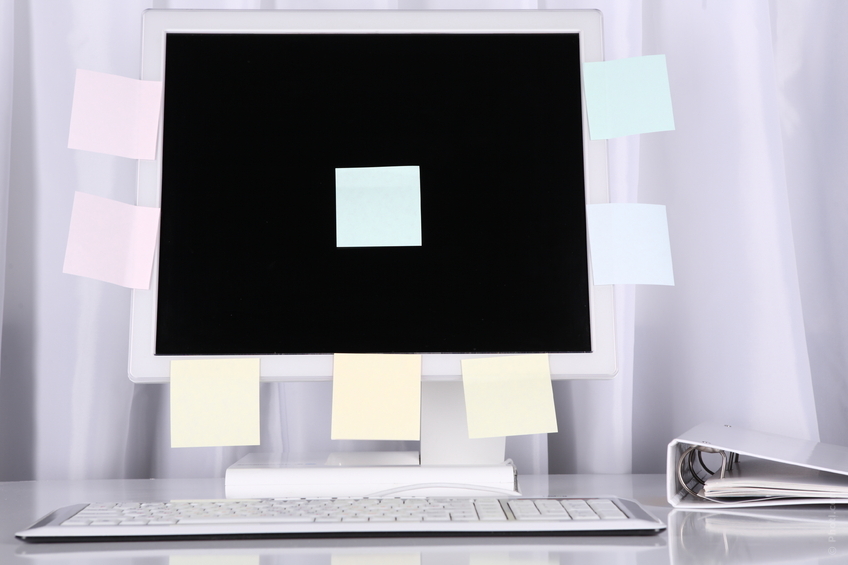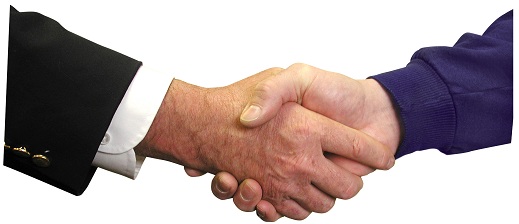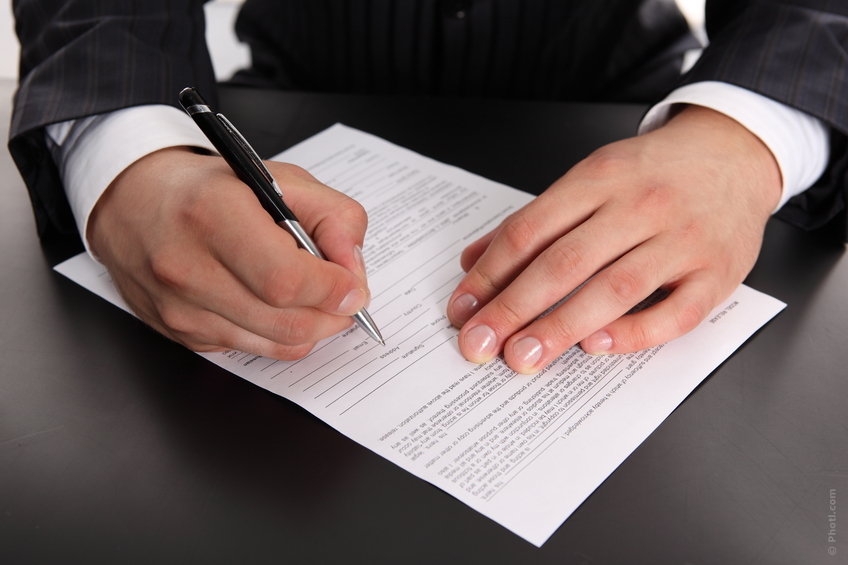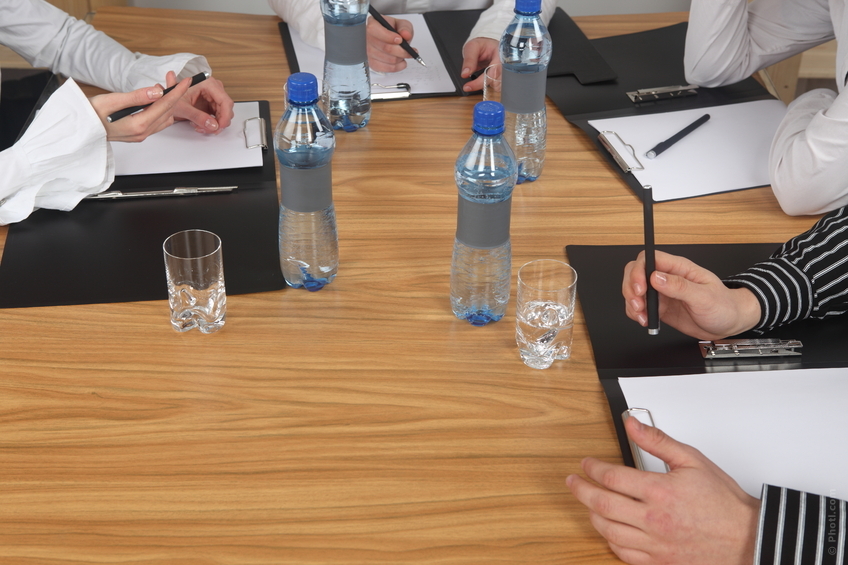There is nothing more important to having a great interview than doing proper interview preparation. No matter what kind of interview it is, it can always seem daunting. We want to provide this information to you for free because you should have the best interview possible. If you read this section in order, you will finish with a strong understanding of how the interview process will proceed.

The easiest and best way to prepare for any interview is to align your skills with the job description. To further clarify, look at the example below. (Job qualification in red, your skill in blue).
As we can see from the above examples, we took sample job descriptions and inserted “your” talents. Do the same for yourself.
Why is this an important exercise? Any type of interview can be daunting, but with the proper preparation, you can easily conquer it. Here is an example of how you can use this preparation. Lets say you have a phone interview tomorrow that you are really nervous about. Using this preparation method will not only ease your nerves, it will help you answer the questions asked. Most questions that an interviewer asks will be qualifying questions; meaning they want to know if you are qualified to do this job and worthy enough to bring in for an in-person interview. Since we know that, completing this preparation guide will allow you to easily answer the questions. Think of it as taking a test in school with the answers right next to you!

Researching the company you are interviewing with is critical in the interview preparation process. Any interview you go on, there will be some type of questions asked in regards to the company. This is your opportunity to shine. It shows your passion for working with this company, but also wanting to be in that particular industry. With unemployment so high and the addition of regular yearly turnover, there are a lot of people seeking new job and careers. Some of them will be much more qualified than you and that is okay! What companies look for beyond intelligence is how badly you want to work for them. They want to see what passion you have because they know no matter how smart someone is, you cannot train them to like their job or like the company. Again, this is why we do research. Please refer to our FREE research guide below and what you should be researching and how to do it.Secondly, you also want to research the individuals .
You will be meeting with. Sometimes this can be tough and other times you just need to be clever. Depending on how you came across the job will open certaindoors for you. For example, if you were presented this job from a Headhunter/Executive Recruiter/Staffing Agency, they most likely will have inside information for you. Once you land the interview, this is your opportunity to ask them questions in regards to the hiring manager and anyone else you will be interviewing with. Please refer to our FREE interviewer research guide on what information to collect. If you found this position on your own, you are going to have to find information on your own. Prior to landing the in-person interview, you most likely had a phone conversation with an in-house corporate recruiter, or the hiring manager themselves, depending on the size of the company. When they call you back with good news, make sure you have pen and paper in hand. It is at this juncture that you want to ask them exactly with whom you are meeting. If it is easy, the individual will tell you the person you are meeting and their title; if this is the case, you are golden! Some companies do not like to give out this information though as they do not want to waste the hiring managers time if they feel you are not the right fit after meeting with you 1-on-1. (Again, this is for larger companies – smaller companies you will meet directly with the hiring manager). If this is your situation, you will want to probe a bit deeper. Tell the individual who called to schedule the interview that you just want to prepare as much as possible and having the names will allow for a better interviewing experience. Sometimes they still will not let you know the names, in which case, you should then ask for their titles. Once you have as much information as possible, head to the Internet for some detective work. The reason we are doing this is because we want to find ways to connect with the people we are meeting with. For example, John is going to an interview with Johnson & Johnson, he finds out that he is meeting with Pamela O’Connor (Associate Director) who is the hiring manager for the role. John finds out that Pam went to same University he did and was in similar extracurricular activities. This immediately gives John a way to break the ice and make a real connection with Pamela, thus making himself more memorable to her. Using the same example, maybe John finds they have a mutual friend who used to work at an old company. This is even better because now the mutual friend can become a personal reference for you! Get where we’re going with this?

We encourage you to download our FREE checklist that you can print out for interview preparation the night before. This way when you wake up in the morning, you know exactly what to do and will have nothing to worry about. This could be one of the most important sections because if you wake unprepared, you will be rushing and not focusing on having a great interview. Use our checklist to go through everything you will need for the interview so you can go to sleep and count sheep! 🙂
Here is the number 1 rule and secret when you ask, “What do I wear to an interview?” easy. You can never overdress for anything in life. “Dress for the job you want, not the job you’ve got.” No matter where you are or what you are doing, it is impossible to be overdressed. Dressing up makes you look good and feel confident. No matter the interview, be sure to wear your nicest outfit; it doesn’t have to be a suit as not everyone owns one and that is okay! But at a minimum, you should wear a shirt/tie for the men and a blouse for the women. Some will argue that you should still go out and buy a suit and the argument is certainly valid. Maybe you can borrow one from a friend or family member.Whatever the case is, the point is that you wear the nicest clothes you own.


Here is the number 1 rule and secret when you ask, “What do I wear to an interview?” easy. You can never overdress for anything in life. “Dress for the job you want, not the job you’ve got.” No matter where you are or what you are doing, it is impossible to be overdressed. Dressing up makes you look good and feel confident. No matter the interview, be sure to wear your nicest outfit; it doesn’t have to be a suit as not everyone owns one and that is okay! But at a minimum, you should wear a shirt/tie for the men and a blouse for the women. Some will argue that you should still go out and buy a suit and the argument is certainly valid. Maybe you can borrow one from a friend or family member.Whatever the case is, the point is that you wear the nicest clothes you own.

You should make sure you are at least 15-20 minutes early to your interview. Do not go into the building until 10 minutes prior though; spend the 5-10 minutes in the car/train/lobby/sidewalk to mentally prepare. You absolutely do not want to think about any interview answers or interview questions, this will just confuse you later on and you will start to panic. You want to prepare just like you would for any major sports game; sing your favorite song, rock out to your favorite band (if you cannot sing that is), call someone to chat, anything you want to do just so you can get in the right frame of mind. Just do not think about interview questions or answers. I would encourage you to watch the following YouTube clip to see exactly what I mean. Click here. Now that you are done… do you see what I mean? Get in the right frame of mind!!!
This arguably could be the most important part of the interview. When you arrive to the building, the first person you will most likely meet will be the receptionist. This will be the company’s first impression of you. Many company recruiters say that they will speak to the receptionist after the interview to see how the interviewee interacted with him/her. It is a good indicator of the individual’s personality, demeanor, and poise. Make sure when you meet and greet the receptionist, simply smile and introduce yourself, maybe even ask how he/she is doing. If you are early, which you should be, spark up a conversation, he/she may offer,good insight about the person/people you are interviewing with. Then let the receptionist know whom you are there to see and sit down. At this point, PLEASE do not pull out your phone, tablet, or anything else.Simply sit in the chair and wait.If there is any company

material lying around then absolutely go ahead and read it, but that is it! Nothing looks worse than when the individual you are meeting with comes out and you are on your phone on Facebook, not paying attention and looking unprofessional. Remember… first impressions are everything! At this point, you will be in an office or interview room, either way, you want to make sure you give the person you meet with a firm handshake, smile, stand up or sit up straight, and use proper grammar; “Hello, how are you doing today” NOT “Hey, how you doin’?” You may laugh, but we have seen this happen many times. From this point on, your non-verbal communication is critical. As you may know, 93% of our communication is non-verbal and therefore it is crucial at this point to know what every recruiter is thinking so you can be prepared. Even though what you say is only 7% you must know how to control it.

There are many types of applications in today’s world; online, paper, email and in-person; the most common being online and paper. Let’s start with the most common of all, online. Online applications became a blessing for Human Resources departments in the late 90’s. It allowed HR professionals to easily organize applications for each job and filter through them much quicker. Today there is application software automating the process even further; it will filter you out of the job based on keywords. With that known, every application asks for pretty much the same information: Personal Information, Education, Job history, Awards,Licenses/Certifications, References, and an attachment of your resume. What a lot of people do for most of these areas is type “see resume”. Know what that tells the person reading it, “LAZY”. Simply put, if you can not bother to fill out
my application, then I will not spend my time reading it or your resume. Employers want people who want to work for them, so show them, fill outevery section with as muchinformation as possible. Thenthere are paper applications. These are still found with smaller employers and many retail shops. Some companies cannot afford this fancy software so they still use the paper application; which honestly is better for you! If you are filling out a paper application, chances are somebody is going to read it. It is crucial that everything you write is legible and has proper grammar. Since there is no computer to make a nice font and spell check for you, you must be 100% accurate. This means always carry a pen, pencil and white out when you go on interviews. Below are some more secrets on the application process
As we all may know, roughly 93% of our communication is non-verbal. This could mean that 93% of your interview is based on things you are not even saying. While of course that is not true, it is a great way to think about it. Just look at the picture above, what is it? A happy face. It is that simple to read body language. That is why it is so important to the interview.
As the job market stiffens with competition, HR professionals and hiring managers will use any reason to disqualify you. What is your defense to non-verbal communication? Being cognizant of what you do. Do you twirl pens or hair? Chew gum? Scratch yourself? Fidget? Shake your leg? You get the point. We all do something and being aware of it is the first step. From the moment you walk out of

your car in the parking lot to the time you get back in it, you should be 100% on top of your game. This means professionalism andhigh class. When you walk intothe interview room or office and sit down, you should only pull out your folder for notes and fold your hands ,

Now you have to prepare for the actual questions and answers. First, you will need to know what type of interview it is. There are many types of interviews and we cover them all right here. Preparing for the interview questions can seem like the most time consuming part of preparing for an interview so we created an extensive list of questions for you to prepare with. Click here to view them.
These can make or break your getting the job. You would be surprised how many people put references down for people who do not remember them.
Here is the number one rule that everyone must do regarding references; tell them that you are putting them down as a reference. Yes, it is that easy. Anyone who is a reference never wants to be caught off guard and you do not want them to be caught-off guard. For example, (Company) “Hi, this is Bob from IBM calling in reference to Sylvester.” (Reference) “Who are you calling about?” Yes, it does happen and what do you think they company’s first and last impression of you will be. “Oh no, this person does not even know who I’m calling about”. No matterwhat that person says the company will be second-guessing theirdecision now. There is a

simple fix to this; just let your references know that you will be using them on your job applications and to be expecting phone calls.What is the number two rule now? Do not list friends or family as references. Nobody cares that your mother thinks you are a hard worker or your best friend thinks you are loyal! It’s just not relevant to your professional career so keep the two separate.
Copyright © 2022 A Better Interview, LLC- All rights reserved